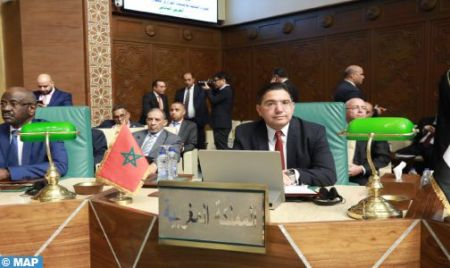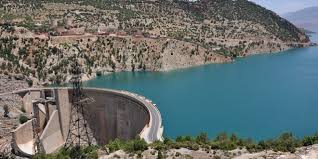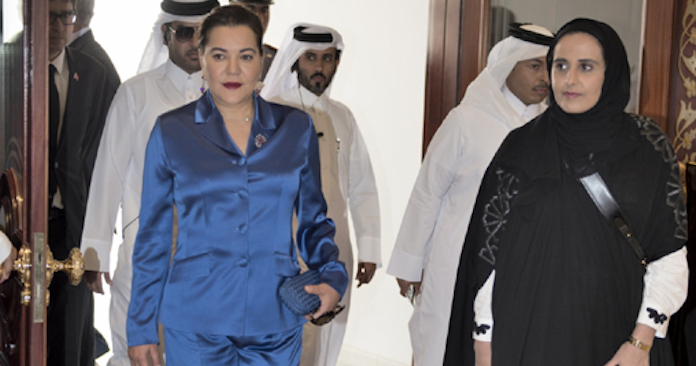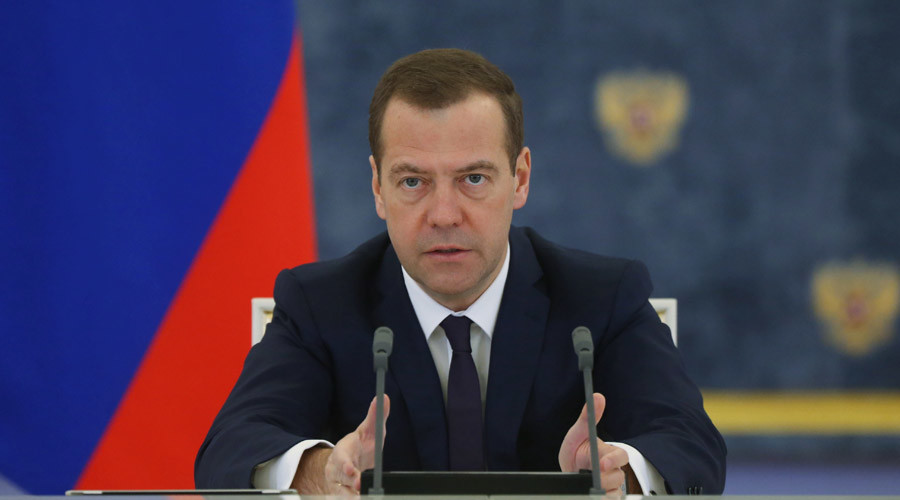The Arab-Japanese Ministerial Dialogue, whose 3rd session wrapped up Tuesday in Cairo, hailed the presidency of King Mohammed VI of Al- Quds Committee.
The joint declaration issued at the end of this ministerial meeting underlines the need to achieve a just, lasting and comprehensive peace in the Middle East, which would resolve all permanent status issues, including the question of Palestinian refugees, in accordance with the relevant United Nations resolutions, the principles of international legality, the principle of “land for peace” and the Arab peace Initiative, as well as the two-State solution.
In his address before this meeting, head of the Moroccan delegation, Minister of Foreign Affairs Nasser Bourita, brought up the Palestinian cause, and recalled that King Mohammed VI, in his capacity as president of the Al-Quds Committee, has always reiterated the sustained and constant commitment to the Palestinian cause, notably the question of Al-Quds Acharif. The Sovereign, he said, has established this cause as a constant and priority of the Kingdom’s foreign policy, based on the conviction and attachment to peace, dialogue and negotiations as the only way to achieve a definitive solution within the framework of international legality and on the basis of the two-State solution, with an independent Palestinian State within the borders of June 4, 1967, with East Al-Quds as capital.
He also pointed out that Morocco is determined to contribute to giving concrete content to the Arab-Japanese Ministerial Dialogue, through the development of its mechanisms, programs and initiatives in various fields, within the framework of openness to the Japanese deeply-rooted experience.
“The success of the Arab-Japanese political dialogue depends primarily on the degree of our commitment to coordination and our ability to act with realism and pragmatism and to achieve concrete results in specific sectors,” he underlined.
He added that given the maturity which will mark the Arab-Japanese political dialogue, “we aspire to boost economic relations between the Arab group and Japan to an efficient and fruitful partnership in promising fields, which now represent national and international priorities, especially since our Arab region has huge potential, allowing it to play a key role within the international community and to be a key partner for Japan and the biggest international stakeholders.”
“We welcome the important role that Japan, a wise and credible great power on the international scene, can play in defending Arab causes, notably the Palestinian issue, which is not exclusively Arab, but constitutes a fair cause that deserves clear support from international stakeholders”, Bourita underlined.
The Moroccan official also noted the relevance and importance of this dialogue as a complementary framework for bilateral relations between Japan and Arab countries, stressing that after ten years of the signing of the memorandum of understanding between the Arab League and the Japanese government, this dialogue has had positive results and promoted exchanges on a number of issues of common interest, because “if the geographical reality means that Japan and Arab States are far from each other , the geopolitical reality brings them closer on the basis of common bonds, mutual interests and strong historical relations”.
“The strategic positions of our countries, the wealth and diversity of their natural and energy resources and their young demographic structures are factors that will allow them to have contributions with strong international impact in global issues and transcontinental challenges,” Bourita said, stressing that despite these assets, the volume of trade between the Arab grouping and Japan is below their aspirations.
“It is time to establish a strategic, promising and innovative partnership, by boosting trade, promoting investment fluidity, mobilizing capacities and opportunities and encouraging humanitarian initiatives and development aid,” Bourita concluded.
Addressing the session, Japanese Foreign Minister Yoshimasa Hayashi has asked for unity with Arab nations to maintain international order.
“Now is the time to unite to uphold the free and open international order based on the rule of law,” he said.
Hayashi also said that Japan and Arab countries should become “closer partners” to tackle global issues, going beyond the energy field.
He said that Tokyo will cooperate to help Arab countries diversity their economies by encouraging Japanese companies to start business there.
During this session which took place pursuant to the memorandum of cooperation signed between the Arab League and the Japanese ministry of Foreign Affairs in September 2013, establishing a mechanism for cooperation and political consultation between the two parties at the level of foreign ministers, discussions focused on coordination and exchange of views on regional and international issues of common interest, particularly in political and economic fields.



